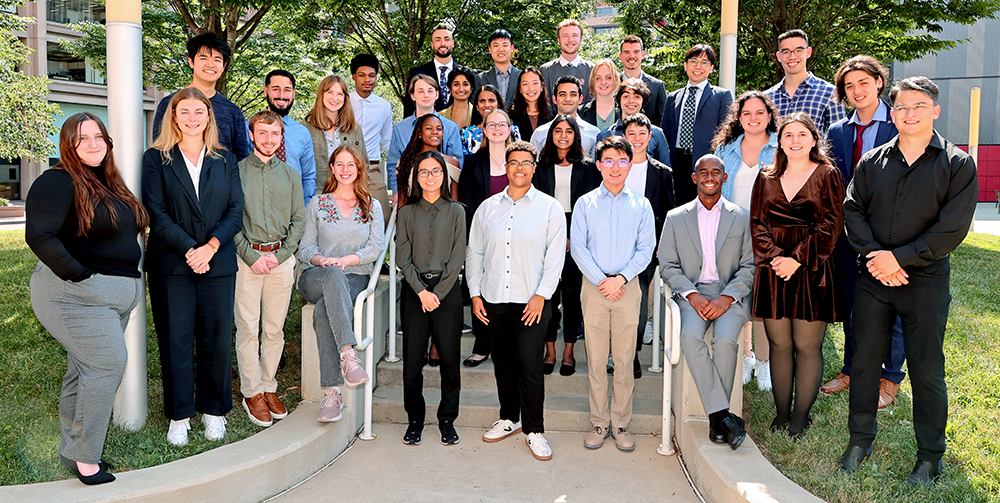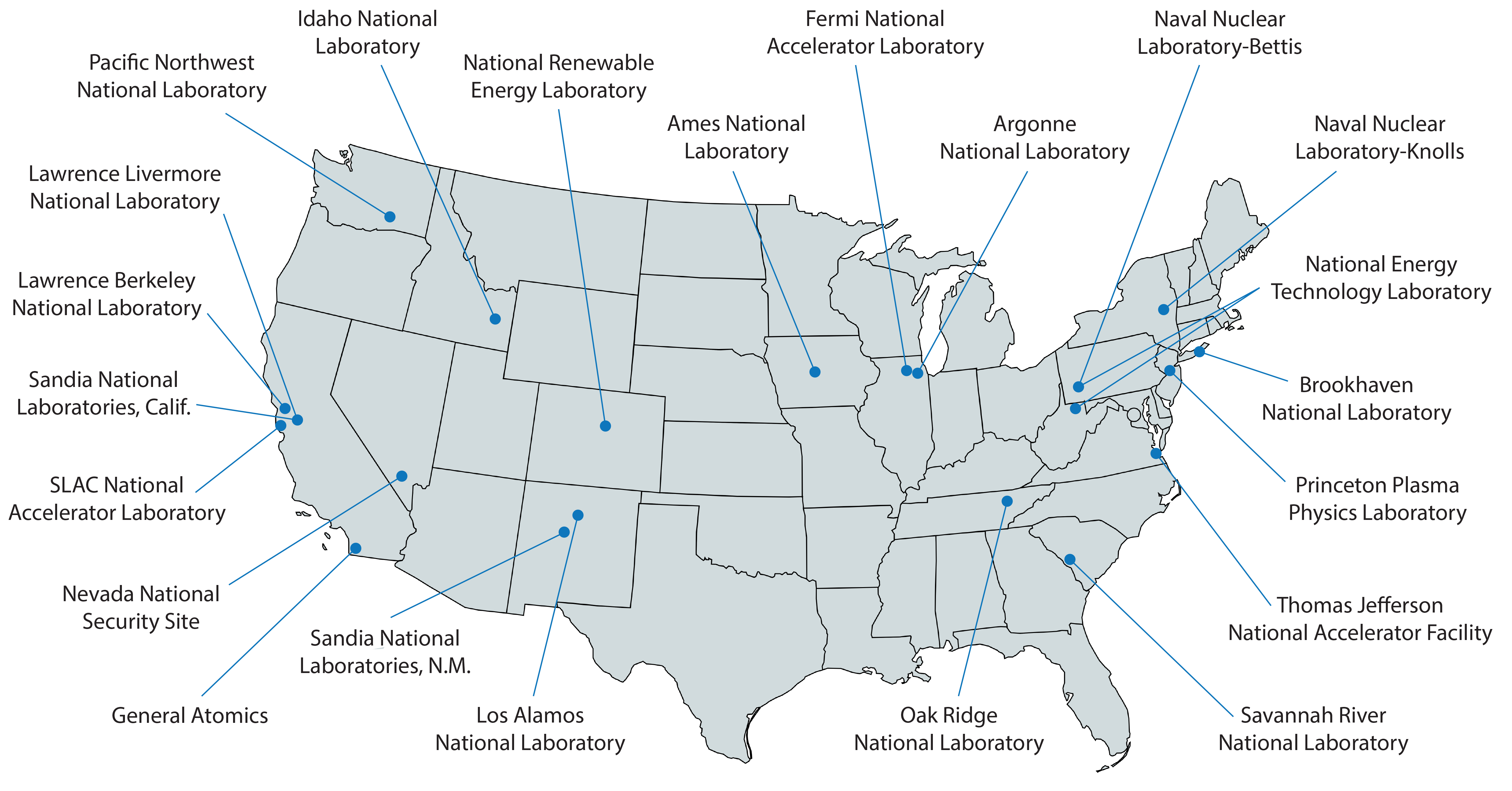Building Community Since 1991
The Department of Energy Computational Science Graduate Fellowship (DOE CSGF) provides outstanding opportunities to students pursuing doctoral degrees in fields that use high-performance computing to solve complex science and engineering problems. The program fosters a community of energetic and committed Ph.D. students, alumni, DOE laboratory staff and scientists who want to have an impact on the nation while advancing their research.
The program is funded by the U.S. Department of Energy's Office of Science and National Nuclear Security Administration.

Our Community
-
More than 700 fellowships awarded
-
Over 85 Ph.D.-granting U.S. universities engaged
-
Alumni working in industry, academia and national laboratories
Eligibility
-
Open to U.S. citizens and lawful permanent residents
-
Seeks senior undergrads and first-year graduate students
-
Recipients must be full-time doctoral students
Financial Benefits
-
$45,000 annual stipend; payment of full tuition and fees
-
Yearly professional development allowance
-
Renewable up to four years
Program Opportunities
-
12-week, on-site DOE laboratory research experience
-
Collaborations with fellows, lab staff and beyond
-
Annual meeting to share research and strengthen connections

DOE Laboratory Practicum
The practicum is a unique opportunity for DOE CSGF fellows to work in a DOE laboratory with some of the most respected scientists in the world. This experience offers the fellows insight into how their scientific interests can translate to research areas important to the nation. Working outside of their thesis studies, the fellows use the practicum as a time to learn new skills and expand their research capabilities. The practicum takes place over a 12-week-minimum period, typically in the summer months, where fellows relocate to the facility and contribute to the work of the laboratory's multidisciplinary teams – most often with ties to high-performance computing resources.
“Outside of developing research connections and new skills, I found the practicum to be incredibly valuable as confidence building experience. Through this experience, I proved that I could start a new project, figure out where I could contribute and learn the things I didn't know yet – all with a new group of people.”
Meet the Fellows
News and Events
-

Miruna Oprescu, a Cornell University DOE CSGF recipient, develops strategies to extract more than correlations from algorithms’ predictions.
-

Tristan Maxon, a University of Alabama DOE CSGF recipient, shows that AI models learn to simulate atomic interactions.
Outreach
-
Image:

The DOE CSGF's annual publication highlights fellows' research, alumni career paths and accomplishments, and current topics in computational science. Browse digital issues or request the latest edition in print.
-
Image:

DEIXIS: Computational Science at the National Laboratories is the frequently updated online companion to the annual print publication. Many stories explore the roles fellows play in scientific discovery across the DOE laboratory system.
-
Image:

Our Science in Parallel podcast features leaders and innovators shaping high-performance computing, artificial intelligence, science and engineering. Subscribe on your favorite platform or listen from the website.
-
Image:

Contact us with questions or to request more information about the DOE CSGF. Or, follow us on social media to gain insight into the fellowship community and to stay up to date regarding deadlines and events.








